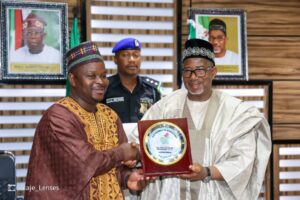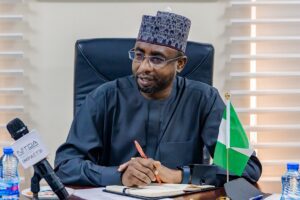
ONE Africa Digital Summit spearheads multi-sectoral conference programme at inaugural GITEX AFRICA 2023
Powerful forum in Marrakech, Morocco gathers government and private sector leaders to steer Africa’s transformation into a single digital market
January 2023: ONE Africa Digital Summit will spearhead a power-packed programme of mind-stretching conference content at the inaugural GITEX AFRICA 2023 in Morocco, unifying government and private sector leaders, policy makers, investors and academics, to steer Africa’s transformation into a single digital market.
The one-day summit on 30 May 2023 at Mamounia Hotel, Marrakech, is poised to be the world’s most influential and outcome-focused forum for dialogues, exchanges and collaborative intentions, accentuating the vast potential of the globe’s youngest continent and shaping the vision for a more connected, sustainable, inclusive, and tech-driven digital economy.
Organiser KAOUN International expects impactful partnerships to be announced, from collaborations on digital infrastructure projects and capacity building initiatives, to agreeing on solutions to boost regional interconnection.
With more than 80 per cent of Africa’s population having mobile subscription, the digital economy is becoming one of the main drivers of cross-continental growth. This is coupled with strong talent development and a spike in public and private sector investments.
To ensure that positive developments continue at a fast pace, heads of States and Governments adopted a bold strategy to unify the continent into a secure Digital Single Market (DSM) by adopting policies and regulations, and leveraging Africa’s economies at scale.
For the common digital market to become a reality, a lot needs to be done with regards to mobilising investments in digital infrastructure and developing the common regulatory frameworks on national and regional levels which will be examined, debated, and pledged during One Africa Digital Summit.
That will be one of many lofty goals among specific high-level panel sessions on the day covering crucial topics from the state of play in Africa’s digital economy and fast tracking integrated and inclusive Digital Public Infrastructure, to amplifying Africa’s resilience towards global economic crises, and rolling out 5G connectivity across the continent.
An historic launch in the world’s next biggest digital economy
One Africa Digital Summit will raise the curtains and set the scene for the inaugural GITEX AFRICA, the continent’s largest all-inclusive tech event, connecting tech titans, governments, SMEs, start-ups, coders, investors, and academia, to accelerate, collaborate, and explore new ventures in the world’s next biggest digital economy.
The super-connector event will take place from 31 May-2 June 2023, launched in partnership with the Digital Development Agency (ADD), a strategic public entity leading the Moroccan government’s digital transformation agenda under the authority of the Moroccan Ministry of Digital Transition and Administration Reform.
GITEX AFRICA is the first overseas venture for GITEX GLOBAL, the influential tech brand trusted by international tech executives, its record-breaking 42nd edition in October 2022 at the Dubai World Trade Centre attracting more than 170,000 attendees from 176 countries.
More information is available at www.gitexafrica.com



